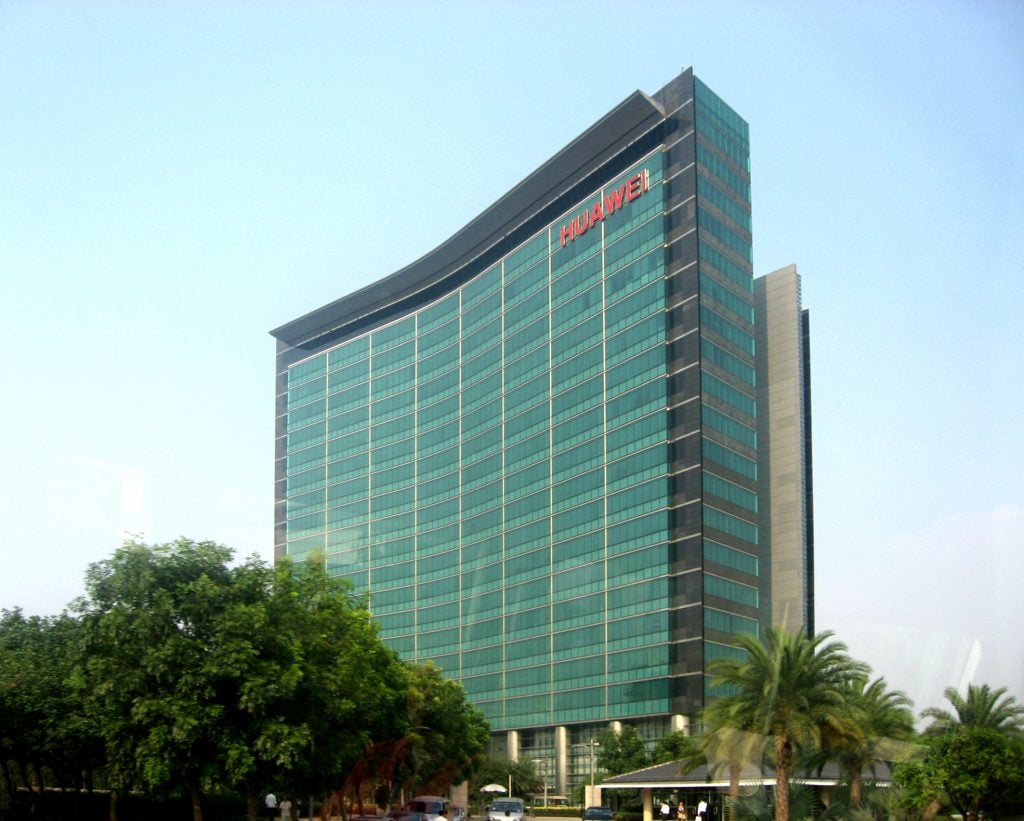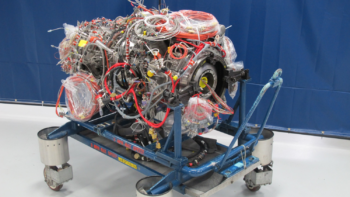
Huawei HQ in Shenzhen, China
TEL AVIV: The United States has demanded that Israel act to bar all Chinese-made systems and components in communications and security systems used in sensitive infrastructure and Shin Bet has issued a broad directive to that effect.
The directive was issued officially by the Israeli Cyber Directorate, but was initiated by the Israeli General Security Service (Shabak, known more commonly in English as Shin Bet), the highest authority on these issues. An earlier directive was voluntary. The new one requires Israeli companies to bar the Chinese materiel.
The new directive was based on an evaluation of the risks in using Chinese-made systems for video and audio surveillance.
Gabi Siboni, cyber and strategy expert at the Israeli Institute for National Security Studies (INSS), told Breaking Defense that, “Washington is furious at the lack of safeguards in Israel against Chinese cyber activities. The steps that have been taken are still on a voluntary basis and are not enough. That will not satisfy the Americans.”
This comes as, last Thursday, the United States added to charges against the prominent Chinese telecom company, Huwaei, accusing it of a “decades-long” plan to steal technology from US firms. Huawei stole trade secrets from American companies such as source code, violating the terms of its agreements with US companies, American prosecutors said.
The danger, according to experts here in Israel, is double-penetration by the Chinese into Israeli major infrastructure as well as into defense systems that have been developed in cooperation between Israel and the U.S.
The directive applies to the use of communications components, security cameras and their control boxes, Wi–Fi systems and other peripheral items used in computer networks.
The Israeli security organizations are very concerned about Chinese involvement, especially at two strategic sites where the sensitivity is particularly high. One is control of the red-line communication of the light train here in Tel Aviv, which passes close to “Kirya,” a central site of the Defense Ministry, IDF headquarters and the IAF high command.
There are practical reasons for this action. Last year, for example, there were reports that Chinese hackers stole the data of Israel’s missile interception system known as Iron Dome. Such attacks are especially worrisome to the US military because of the close cooperation between the defense establishments of the U.S and Israel. China can get classified American data by hacking Israeli systems, Israeli experts said.
Attacks on Israel’s private sector are no less alarming. According to recent reports, Chinese companies have deeply penetrated the Israeli cellular and security markets.
Chinese company Huawei has a development center here and at least one company focusing on cyber security and database protection. Huawei has also reportedly invested in a high tech firm here that supplies cloud storage. It was recently acquired by Google. Sources here would not identify it by name.
Also, it was recently reported that Huawei had opened a representative office in Israel to sell equipment and maintenance services to companies that build solar power facilities. According to several reports, this could allow Chinese access to data on the Israeli electricity sector and expand its hold on the sector.
According to a report issued by INSS, Israel has not ignored the steps taken by the U.S directly against Huawei: “The Huawei case is a relatively simple policy challenge for Israel, for two reasons. First, Israel and the United States have a wealth of experience and relatively broad common ground in cyber risks perceptions. Second is the high importance placed on the issue by the United States.”
Government officials and private sector experts estimate that Chinese investment in Israel has reached $11.7 billion over the years, including one of Israel’s largest dairy products companies.
Northrop sees F-16 IVEWS, IBCS as ‘multibillion dollar’ international sales drivers
In addition, CEO Kathy Warden says the company sees a chance to sell up to five Triton UAVs to the NATO alliance.


























